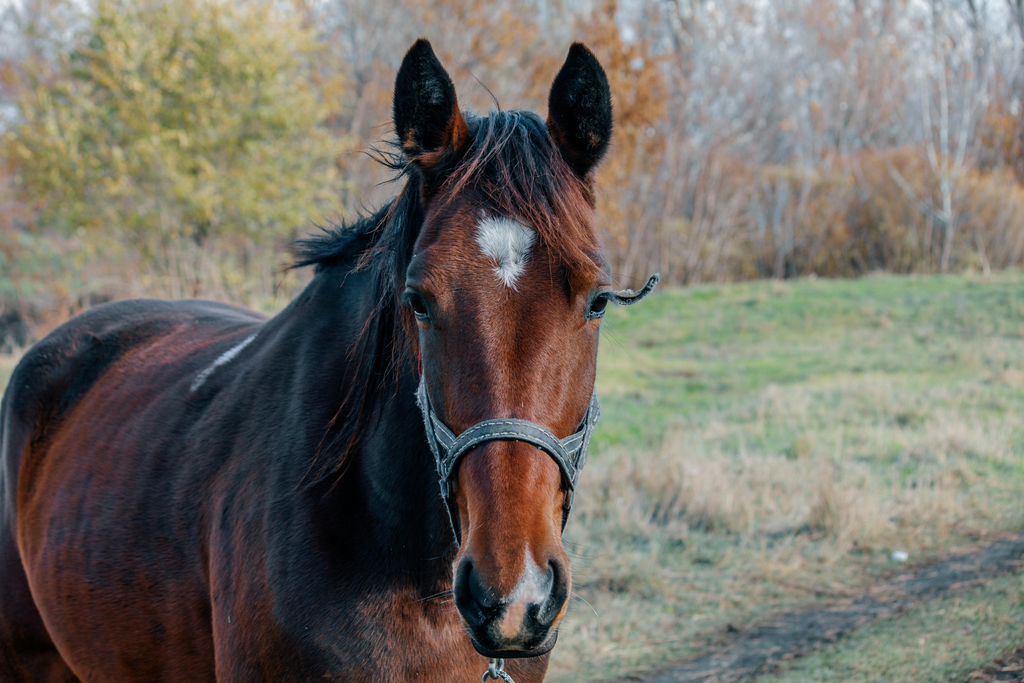Here are the Important Things to Remember About Cancer in Horses
If you're a horse parent, finding out that your equine pal is suffering from cancer can be rather challenging to process. This serious disease isn't just going to significantly affect your horse's health in a negative way—it can potentially lead to fatal consequences if not properly and immediately dealt with.
This is the reason why we've put together this blog post on cancer in horses. Besides walking you through important things to know about like the various types that can affect horses, we will also give you a rundown of its possible causes, and methods of diagnosis, as well as the treatment options you can go for.
What Exactly is Cancer in Horses?
All forms of equine cancer take place when horse cells undergo a genetic change that causes them to become abnormal. These abnormal cells rapidly grow and spread until they "overcome" a particular part of the body and its surrounding tissues, resulting in anomalous growths.
If not attended to the right way, these growths don't just increase in size but also obstruct the functions of essential organs sooner or later. This is where early detection and accurate diagnosis come in so the problem can be treated like it should.
It is important to remember that "a few days" and "several months" can mean the difference between cancers in horses successfully treated and susceptibility to more health issues like infections, recurrence, and even death.
What's really alarming about cancer in horses is that it can affect any part of the entire body of the animal. There are cancers that attack the intestinal tract, the eye region, the kidney, the skin, the lungs, the brain, and the heart, among others.
Examples of this serious disease include multicentric lymphoma, adenocarcinoma, cutaneous lymphoma, melanoma, and sarcoids. We will touch on these more as we go along.
Is Cancer and Tumors in Horses the Same?
The short answer is no.
A tumor is made up of tumor cells that commonly manifest as bumps, lumps, and lesions. It can be either "benign" (which means it will not undergo metastasis or spread to a different site or body part) or "malignant" where it already becomes cancerous, such as in the case of lymphoma or adenocarcinoma in horses.
While the presence of a tumor is not that severe, proper evaluation and treatment procedures by veterinary medicine professionals is still crucial. Treatment depends on the tumor type, the site where it developed, as well as other relevant factors. Tumor cells act differently compared to their cancerous counterparts.
Key examples to take note of include equine skin tumors and mast cell tumors. Upon thorough physical examination, tumors may appear as an open wound, a lesion, a recurring inflammation, or a combination of these.
What are the Clinical Signs of Cancer in Horses?

The following are the most common clinical signs of horse cancers. Make sure you consult a pet wellness expert or veterinary medicine professional as soon as these occur persistently:
-
Lameness
-
Chronic diarrhea and similar intestinal tract issues
-
Weight loss (especially in cutaneous lymphoma)
-
Coughing
-
Swollen lymph nodes
-
Masses (especially in cutaneous lymphoma)
-
Lesions (especially in malignant equine skin tumors)
-
Bleeding
-
Lethargy
-
Abdominal distension
-
Difficulty urinating
-
Loss of appetite (especially in cutaneous lymphoma)
-
Behavioral change
Since cancers in horses can attack any part of the entire body, the diagnosis and treatment depend on the particular area affected. This is the reason why some of these indicators may not be present in certain cases. A proper prognosis can also be provided by your veterinary medicine practitioner for the proper treating of the same.
What are the Possible Causes of Horse Cancers?
Despite the strides we've made in modern veterinary medicine, the exact cause of cancers in horses is still unknown. However, there are some "risk factors" that can possibly make these animals prone to this disease.
In the case of melanoma, it has been reported that genetic mutations responsible for the color of the horse's coat could possibly be responsible for this type of cancer. A variety of mutations are thought to be responsible for different types of cancer in horses.
Unfortunately, the causes of these mutations still cannot be pinpointed. The best thing to keep in mind is to consult your vet as soon as you notice the clinical signs of this disease. It is crucial to remember that the clinical signs of multicentric lymphoma may sometimes be akin to those of a malignant tumor.
Moreover, being vigilant of the clinical signs of a tumor or lymphoma can have a significant effect on the overall prognosis of the same. It can be much easier to strategize the ideal treatment if there is a proper evaluation of the affected animal.
Treating can also be performed sooner (this may include an "ancillary" therapy like cryotherapy) to keep clear from untoward incidents—even the risk of death. So long as you notice some key indicators like drastic weight loss, anomalous bumps, and lumps, as well as sudden behavioral changes, your equine companion could be in for treatment soon.
What are the Most Common Types of Cancer in Equines?
What is surprising is that the chances a tumor has developed into cancer in horses are quite rare. Evidence of this is the small number of equines that have been diagnosed and treated with conventional methods like local chemotherapy, surgery, radiation therapy, or a blend of these.
Although cancers in horses is quite rare, this disease can still occur in these majestic animals. The following are the "uncommon" types of this serious health problem that a horse can possibly become vulnerable to:
1. Sarcoids in horses
Sarcoids are the skin tumors most often diagnosed in horses of all types. While sarcoids are generally benign (meaning, they do not metastasize), they can grow considerably and become troublesome. Compared to other types like melanomas and lymphoma, sarcoids are not as dangerous and radiation therapy is regarded as an appropriate treatment plan.
2. Melanoma in horses
Melanomas are usually benign but can become malignant in some cases. These masses are generally firm and dark in color. These lumps are less obvious if your horse has a dark coat yet are most often found in gray ones. Always monitor your gray horse's skin closely for any abnormalities and to have him examined by a vet if you observe a new mass to get treatments going immediately.
3. Squamous cell carcinoma in horses
Squamous cell carcinoma usually grows in non-pigmented areas of the skin, especially areas not covered with hair, such as the eye area and genital area. These skin cancers are often linked to excessive exposure to ultraviolet (UV) light.
4. Eye cancer in horses
The most common eye cancer found in equines is ocular squamous cell carcinoma. It causes loss of vision in the affected eye and can even lead to loss of the eye. Certain breeds of horses are predisposed to this type of cancer, particularly the Haflinger and Appaloosa, among others.
5. Lymphoma in horses
This type of cancer is caused by the activities of neoplastic lymphocytes that affect the morphology of normal lymphocytes within a few several months. The prognosis can be quite grim since it somehow directly attacks a horse's immune system and can unpredictably metastasize to other areas. Immediate cure is needed here.
6. Lymphosarcoma in horses
Lymphosarcoma is considered a type of diffuse, malignant lymphoma. It can affect different organs like the intestines, skin, and chest cavity, among others. When an animal is diagnosed because it is showing symptoms, the cancer is often already in advanced stages where treatment is already futile.
7. Cancer of the reproductive system in horses
As for female horses, breast tumors are less common, but when diagnosed they are rarely benign. On the other hand, males can develop testicular or prostate tumors. They are less often malignant. Like we've stressed earlier, treatments should be given immediately to have a good prognosis.
How are Equine Tumours and Cancers Diagnosed?

Before the appropriate treatment for lymphoma or some other form of malignant tumor can begin, a proper diagnosis needs to be conducted. The following are the typical diagnoses for lymphoma and other types of cancers in horses:
Cytology and biopsy
A biopsy is basically a procedure where cells can be extracted with a needle. Alternatively, cytology follows when this sample is placed on a slide and analyzed under a microscope. The difference between a biopsy and fine needle aspiration (FNA) is that a much finer needle is used in the latter procedure.
Blood tests
Blood tests are useful as regards getting an overview of what is going on in a horse's body. If some organs are not working ideally, this could be a sign that the cancer's development is ongoing or has already spread to a different area. Certain "markers" found in cancers like lymphoma can also point the diagnosis in the right direction.
Medical imaging
Medical imaging techniques, such as X-rays or magnetic resonance, may be needed to determine if your horse has metastases or masses on its internal organs. While cancers may be rare in equines, medical imaging may be required to determine if a certain inflammation may already be a lymphoma or sarcoid.
We'd just like to highlight that a thorough diagnosis is crucial since treatments for cancers like local chemotherapy (usually involving cisplatin) and surgical removal cannot be given in an unsure manner. So do ancillary therapy and treatment like injections that aim to boost chances of healing and remission.
Conventional Treatments for Horse Cancer
Akin to smaller animals affected with lymphoma and similar cancers, your vet can direct you to a treatment plan suited to the type and stage of your horse's cancer. The main treatment options include surgical removal of masses, radiation therapy, and local chemotherapy.
Most of these therapeutic options involve your animal visiting a veterinary referral center, as small veterinary clinics will not necessarily have the facilities and/or equipment required for, say, radiotherapy or chemotherapy treatment.
And now let's talk about the cons of these conventional treatment options for cancers in horses...
It's not so secret that conventional treatment for cancers like lymphoma can be quite expensive. Surgery for horses can easily run into the thousands of dollars. It is also a very invasive course of action.
Chemotherapy can cause some side effects, such as hair loss, colic, hypersensitivity, or lethargy. Although chemotherapy is seen as an appropriate go-to treatment plan for cancers in horses and can be combined with surgery, it does have its low points.
Radiation therapy is often used in conjunction with surgical removal, as its aim is to shrink the size of the tumor and prevent the spread of abnormal cells in the body. Surgery may also be performed in conjunction with this type of therapy.
A Natural Product to Promote the Good Health of Your Horse

Before we proceed to this part of our discussion, we'd just like to emphasize that this is NOT a health claim. We are simply stressing the crucial contribution of having a strong immune system to help keep your pet free from disease and illness.
Zumalka's natural immune support for horses with cancer, PIPTOPET, is designed to boost your horse’s immune system to help him fight the disease naturally. PIPTOPET is made from a mushroom called Fomitopsis betulina and has already been given quite a lot of positive reviews by pet parents worldwide in Dogster, Catster, as well as Hepper.
Given that PIPTOPET is a natural product, it can be safely used when your equine companion is going through conventional treatments like chemotherapy. Why not check out PIPTOPET now to discover why more and more pet parents are having it in their home care checklists?






Leave a comment